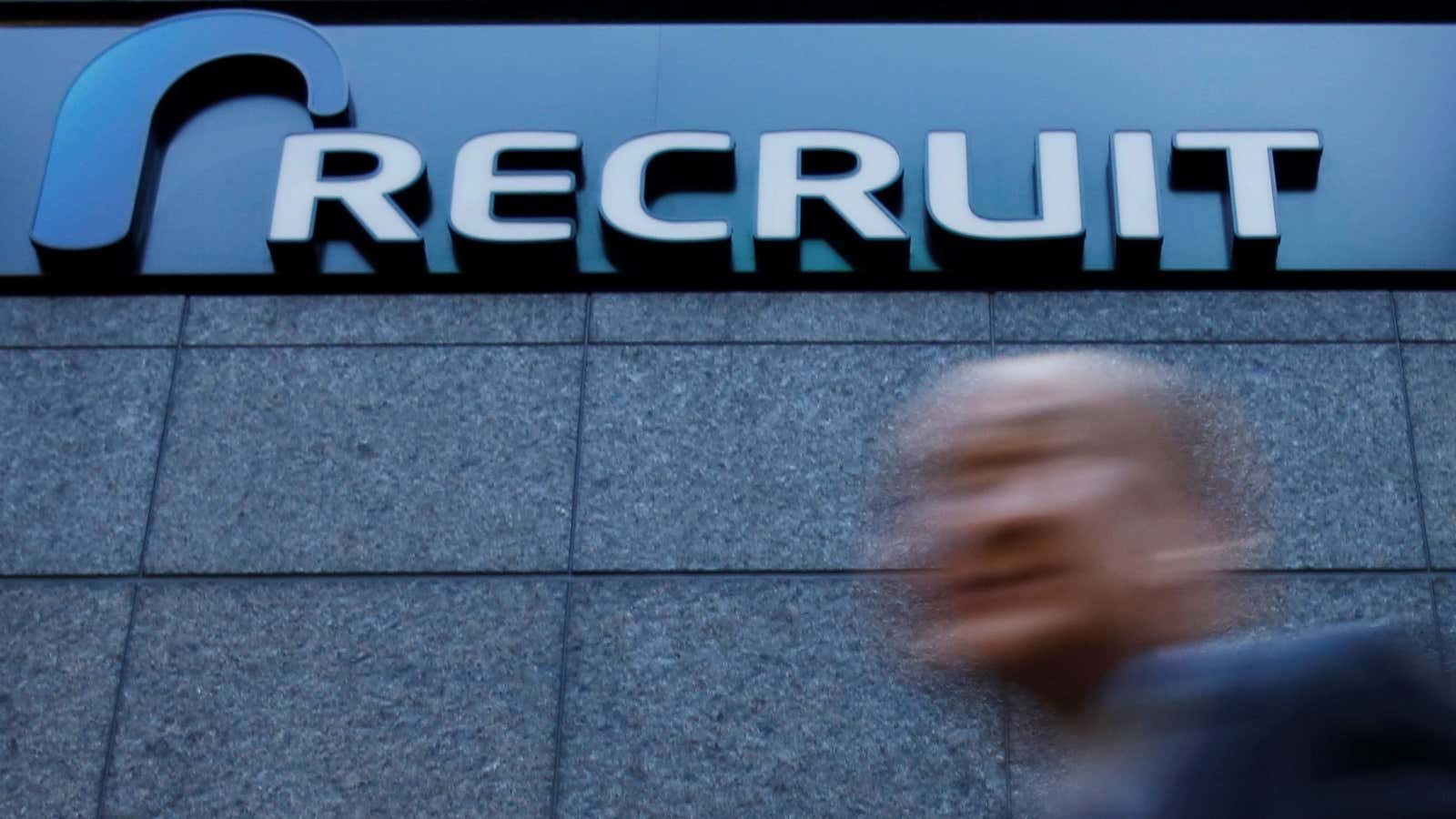From a young age, we’re instructed about the importance of finding fulfillment in work. Many of us spend—at least—eight hours a day at work, so you better do something you love.
Yet most of us are not in love with our jobs, and the near-universal urge to look for fulfillment elsewhere has fueled the rise of a massive job-search industry and the sale of Glassdoor, the fast-growing job review site, for $1.2 billion.
Glassdoor announced on May 8 that it agreed to be purchased by Recruit Holdings, a Japanese HR technology company which also owns Indeed, the world’s largest online job board. Together, they give Recruit a potent array of tools for job seekers, and for employers.
Glassdoor’s employer-review model has proven wildly popular. The site, founded in 2007 and backed by venture capital, now contains more than 40 million reviews of more than 770,000 companies.
Behind its success is the same restless impulse that has led 560 million people to post their profiles on LinkedIn: Even workers with steady, full-time employment want more out of their careers.
At the heart of the jobs industry is society’s inability to efficiently match workers with their ideal careers. In surveys conducted by Gallup in 2015 and 2016, only 16% of workers globally who were in steady employment reported feeling engaged in their jobs. In a world with 3.3 billion adults working or looking for work, only 214 million, or 7%, have a great job—that is, they find their work meaningful and fulfilling.
Sites like Indeed and LinkedIn are working at developing better tools that match job seekers with their ideal jobs, and employers are increasingly turning to assessments powered by algorithms to identify the best fits for their companies.
But until technology can better sort the world of jobs and job seekers, there’s still a lot of opportunity for sites like Glassdoor that can make the job search just a little bit easier.
